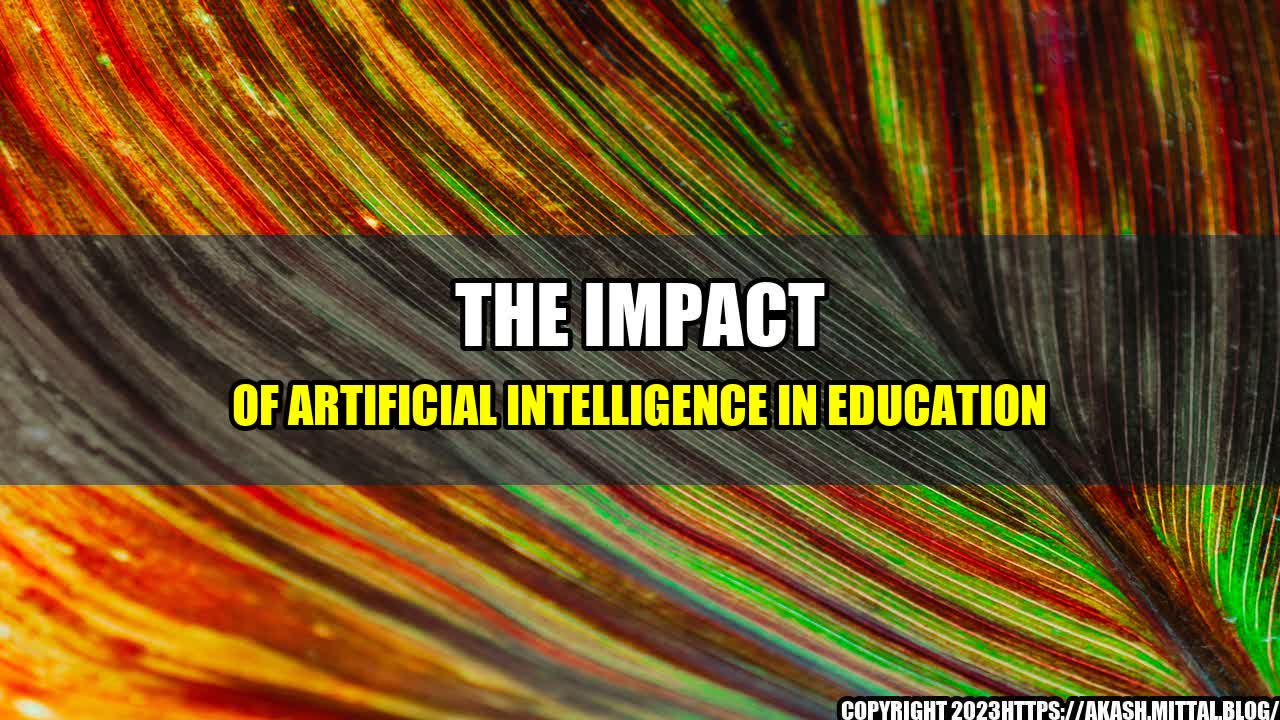Introduction: The AI Revolution Arrival on Campus
When Sarah, a freshman at FSU, tried to enroll in a calculus class she needed for her major, she found it full. As she was scrolling through the course catalog, she came across a new option - an online version of the same class, powered by an artificial intelligence (AI) tool that could customize the learning experience to her individual needs.
At first, she was skeptical. How could a computer understand her learning style better than a human professor? But after a few weeks of using the tool, she was hooked. The AI algorithm was able to identify her weak spots and provide targeted feedback and resources to help her improve, all without the need for a human instructor.
Sarah's experience is just one example of the ways in which AI is transforming the landscape of education. From adaptive learning platforms to intelligent tutoring systems, the tools powered by AI are changing the way students learn and teachers teach.
Quantifiable Examples: The Numbers Behind the AI Revolution in Education
- According to a report by HolonIQ, the global education AI market is projected to reach $6 billion by 2025.
- AI-powered tutoring systems have been shown to increase student performance by 28%, according to a study by Carnegie Mellon University.
- Adaptive learning platforms that use AI algorithms to personalize the learning experience for each student have been shown to improve course completion rates by 21%, according to a study by EdSurge.
- The use of AI in grading and assessment can save teachers up to 30% of their time, according to a report by the National Education Association.
The Benefits of AI in Education
While there are certainly concerns about the potential drawbacks of relying too heavily on AI in education, there are also many potential advantages to consider.
Customized Learning
One of the most exciting benefits of AI-powered education tools is the ability to customize the learning experience for each student. By using algorithms that can analyze data from student assessments, engagement, and feedback, these tools can identify areas where a student is struggling and provide targeted resources to help them improve. This can lead to a more efficient learning process and better outcomes for students.
Increased Efficiency
AI tools can also help to streamline administrative tasks, such as grading and assessment, leaving more time for teachers to focus on teaching and student support. By automating some of these tasks, teachers can save time and increase their productivity.
Improved Accessibility
For students who face barriers to traditional classroom learning - whether due to physical limitations, geographic isolation, or other factors - AI-powered education tools can provide a more accessible alternative. Online courses and intelligent tutoring systems can be accessed from anywhere with an internet connection, making education more equitable and inclusive.
: Putting a Human Face on the AI Revolution
While statistics and data are important indicators of the impact of AI in education, it's also helpful to hear from people who have experienced these tools firsthand.
Case Study: Nicole
Nicole is a high school student with dyslexia who has struggled with reading comprehension. Despite working with a specialized tutor, she was still struggling to keep up with her classmates. However, when her school adopted an AI-powered reading app, her learning experience changed dramatically. The app uses machine learning to analyze her reading patterns and adjust the difficulty level of texts accordingly. Now, Nicole is able to read on grade level and is more confident in her abilities.
Personal Anecdote: Professor Smith
Professor Smith, a biology instructor at FAMU, was initially resistant to using an AI-powered test grading tool. However, after using it for a semester, she found that it not only saved her time but also provided valuable insights into student performance. By seeing which questions students struggled with the most, she was able to adjust her teaching approach for future classes.
Conclusion: The Future of Education with AI
As Sarah discovered in her calculus class, AI-powered education tools have the potential to revolutionize the way we learn and teach. While there are certainly challenges to be addressed, such as issues of privacy and equity, the benefits of these tools cannot be ignored.
In sum, here are three key takeaways:
- AI tools can provide customized learning experiences that can lead to better outcomes for students.
- These tools can increase efficiency for teachers and administrators, freeing up time for more personalized instruction and support.
- AI-powered education tools can increase accessibility and inclusion, making education more equitable for all students.
As we look to the future of education, AI will undoubtedly play a larger role in how we learn and teach. It's up to us to ensure that we use these tools in ways that are responsible, ethical, and effective.

Curated by Team Akash.Mittal.Blog
Share on Twitter Share on LinkedIn